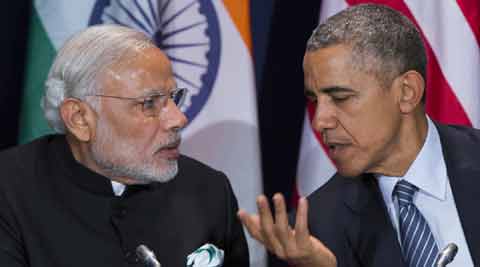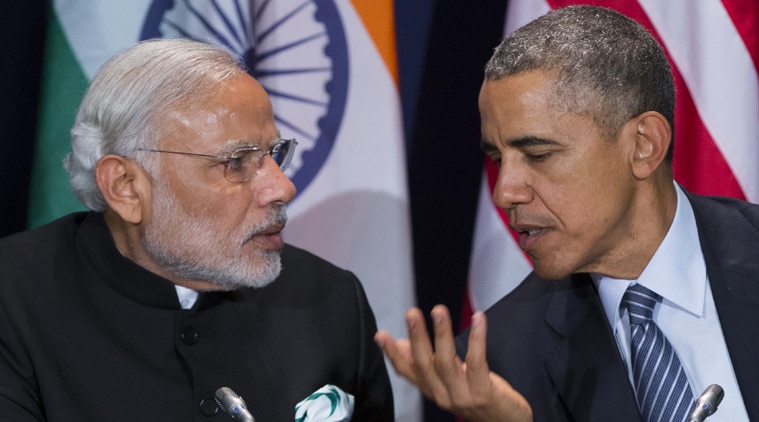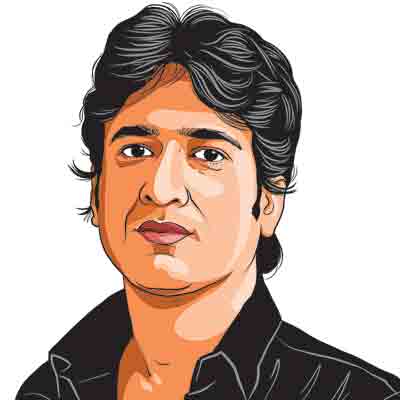Opinion View From The Right: Bharat Asserts
The editorial notes that while the year saw tumultuous events at the global level, “no one can deny that Bharat has learnt to assert its position and no major global decision can be arrived at unless Bharat is on board”.

 The year that started with US President Barack Obama visiting Bharat as chief guest for the Republic Day function is ending with Prime Minister Narendra Modi visiting Afghanistan via Russia.
The year that started with US President Barack Obama visiting Bharat as chief guest for the Republic Day function is ending with Prime Minister Narendra Modi visiting Afghanistan via Russia.
An editorial in the Organiser, a magazine associated with the RSS, says the year 2015 saw the “emergence of [an] assertive Bharat”. “The year that started with US President Barack Obama visiting Bharat as chief guest for the Republic Day function, is ending with Prime Minister Narendra Modi visiting Afghanistan via Russia,” it says. The editorial notes that while the year saw tumultuous events at the global level, “no one can deny that Bharat has learnt to assert its position and no major global decision can be arrived at unless Bharat is on board”.
The process, according to the magazine, “started with the nuclear tests of 1998” under the Atal Bihari Vajpayee government. “The UPA government due to constraints and [its] priorities could not sustain that momentum… [Now] the gap between our potential and performance is getting bridged through a stable, decisive government”. The editorial contends that “Bharat succinctly articulated and asserted its position” at the Paris climate change negotiations and trade talks at Nairobi. India’s foreign policy was always “constrained by domestic factors, economic and energy needs and military dependence”, but the “imaginative leadership of Modi has shown that those very constraints can be addressed through [an] assertive global role”.
India & Radical Islam
The cover story in the Organiser is on the growing radicalisation of Muslim youth across the globe. It notes that the “only silver lining” Bharat has witnessed is the high number of protests from within the Muslim community against the IS, and asks, “can Muslims of Bharat with roots in a culture of assimilation provide answers to this menace?” It notes that this year “has been very frustrating for a moderate, progressive, pluralistic, inclusivist Bharateeya Muslim”. Contending that “Bharat used to express pride in the fact that not one Muslim from this country joined the multi-national al-Qaeda terrorist group”, it recalls recent instances that question this assumption. “We, perhaps, prematurely celebrated a lack of radicalisation in Bharateeya Islam,” the article says. The writer wants the reasons behind “the ideological attraction that some of our youth are feeling towards radicalisation” to be studied so that “the silent drift” can be stemmed. The article adds “we cannot understand this frightening phenomenon unless we appreciate that while the very word Islam means peace and total submission to god, in Islam, roots of radicalisation go very deep”. “Ideological extremism has been a part of Islamic history almost from its very inception,” the article claims.
Interpreting Sonia
An article in the Organiser attacks Congress president Sonia Gandhi for invoking her mother-in-law, Indira Gandhi, when she was served a court summons. Sonia’s statement “is a proclamation that she would face the legal crisis through political means,” the article says. The writer says the Janata government in 1977 appointed several commissions to probe the atrocities committed during the Emergency.
“Prime Minister Morarji Desai knew that Indira would create sympathy for herself if action [against her] was taken,” the article says. Hence, he “turned his back on these inquiries”. However, “Chaudhary Charan Singh, an intemperate and rustic politician, filed an FIR in a trivial matter and ordered [the] arrest of Indira”. At that time, Indira “was contemplating retirement from politics”. Charan Singh’s “recklessness” ensured that “Indira could not be kept even for a day behind the bars and Janata government faced ignominy”. Sonia’s statement needs to be taken seriously since she would do everything to generate public sympathy for herself, the article concludes.





